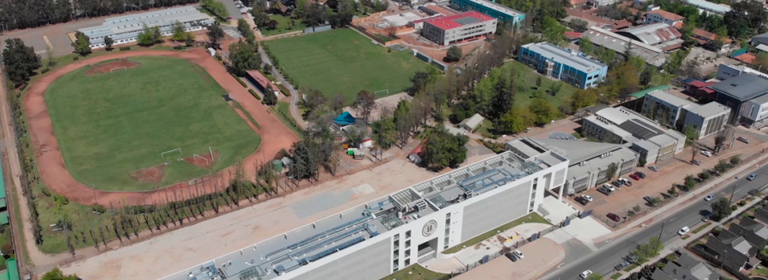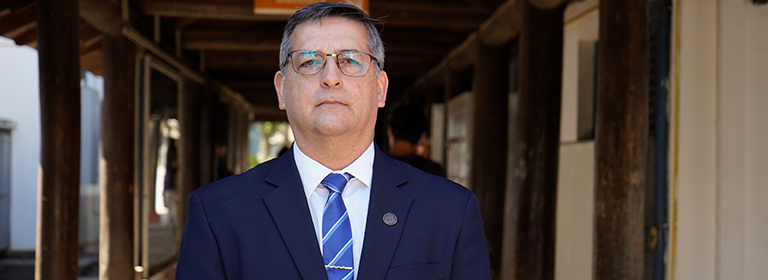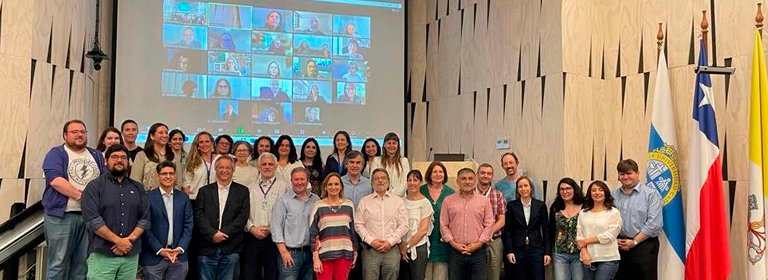 Teaching and learning Spanish as a second language (L2) or as a foreign language (LE) in Chile has become a challenge, or a necessity, in recent years. This is the product of the increase in immigration of people who are unable to communicate in the language. It is said that one of the considerations that people consider when immigrating to a certain place is the language spoken in the host society. However, there are times when it is so urgent to leave the home country–whether due to political persecution, natural disasters, famine– that mastery of the host language takes a backseat. There is no doubt that the world is in an era of unprecedented human mobility, and the need to lead towards immigration that allows to maximize opportunities for social mobility and inclusion has been recognized in the 2030 Agenda for Sustainable Development, where the positive contribution of migrants to this development is also highlighted (International Organization for Migration [IOM], 2021). The IOM establishes that there are 281 million international migrants, and two thirds of them are workers (IOM, 2022).
Teaching and learning Spanish as a second language (L2) or as a foreign language (LE) in Chile has become a challenge, or a necessity, in recent years. This is the product of the increase in immigration of people who are unable to communicate in the language. It is said that one of the considerations that people consider when immigrating to a certain place is the language spoken in the host society. However, there are times when it is so urgent to leave the home country–whether due to political persecution, natural disasters, famine– that mastery of the host language takes a backseat. There is no doubt that the world is in an era of unprecedented human mobility, and the need to lead towards immigration that allows to maximize opportunities for social mobility and inclusion has been recognized in the 2030 Agenda for Sustainable Development, where the positive contribution of migrants to this development is also highlighted (International Organization for Migration [IOM], 2021). The IOM establishes that there are 281 million international migrants, and two thirds of them are workers (IOM, 2022).
Chile, no stranger to this immigratory reality, which has carried on for centuries, only recently has seen it with greater force. This, since, in a few years, income increased from 2.6% (CASEN, 2016) to 7.9% (National Institute of Statistics and the Department of Foreigners and Migration [INE-DEM], 2020). People have come from different parts of the world. However, the one that has most challenged society is those from Haiti, most of whom do not speak Spanish. The lack of knowledge of the host language, in this case Spanish, generates difficulties when requesting legal procedures, inserting themselves in educational, social, cultural, and labor contexts and, the latter, on occasions, occurs under the violation of the human rights of the workers. The above is an example of how language barriers limit the full inclusion of people in a society.
In this context, the Initiation Fondecyt project 11190448 in which I am working, tries, in part, to respond or better attend to the component of the linguistic diversity of the people who arrive in the country and, to one of the problems that they face, which is related to the impossibility for some groups, such as that of Haiti, to communicate in Spanish.
Due to the current scenario in Chile, it has been found that Spanish is taught as L2 or LE, and it is possible to analyze it from two perspectives. First, there are programs that have already been in operation for a few years (there are very few), which are housed in higher education institutions, that are paid for by the students, structured according to their training plans, supported at the Institutional level, dictated by expert professors, and are focused on professionals and academics who come to work to Chile and are future students. Secondly, there are other programs that have been born from the need, mainly, of the Haitian community. These courses are taught by volunteers (with or without teacher training), who are not paid for their work. These courses are free for participants and include a social support component. Although some of them are under the auspices of universities, they have emerged and are maintained over time, due to the persistence of academics in particular.
So, we ask ourselves, as a society, what will the strategy be to attend to this linguistic diversity? The educational system has Spanish teachers, but to teach it as a mother tongue, the universities do not prepare these teachers with strategies to teach it as an L2 or an LE. In this context, how does the school system face the inclusion of non-Spanish-speaking students in its classrooms? We still have a long way to go on this issue.
In recent days it has been reported that the immigration of people has not stopped, and that it is probably increasing, therefore, there is an alert in the educational field and, also, for higher education institutions, to include Spanish teaching-learning methodologies such as L2 and/or LE in training programs. What we require, finally, is to form a cohesive society, where all of us can participate equally.
Valeria Sumonte Rojas, researcher of the Fondecyt de Initiacion project 11190448 and director of the Master’s Degree in Linguistics Applied to the Teaching and Learning of the English Language.













